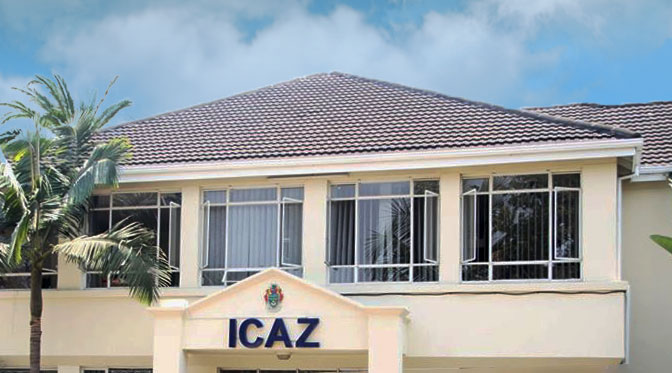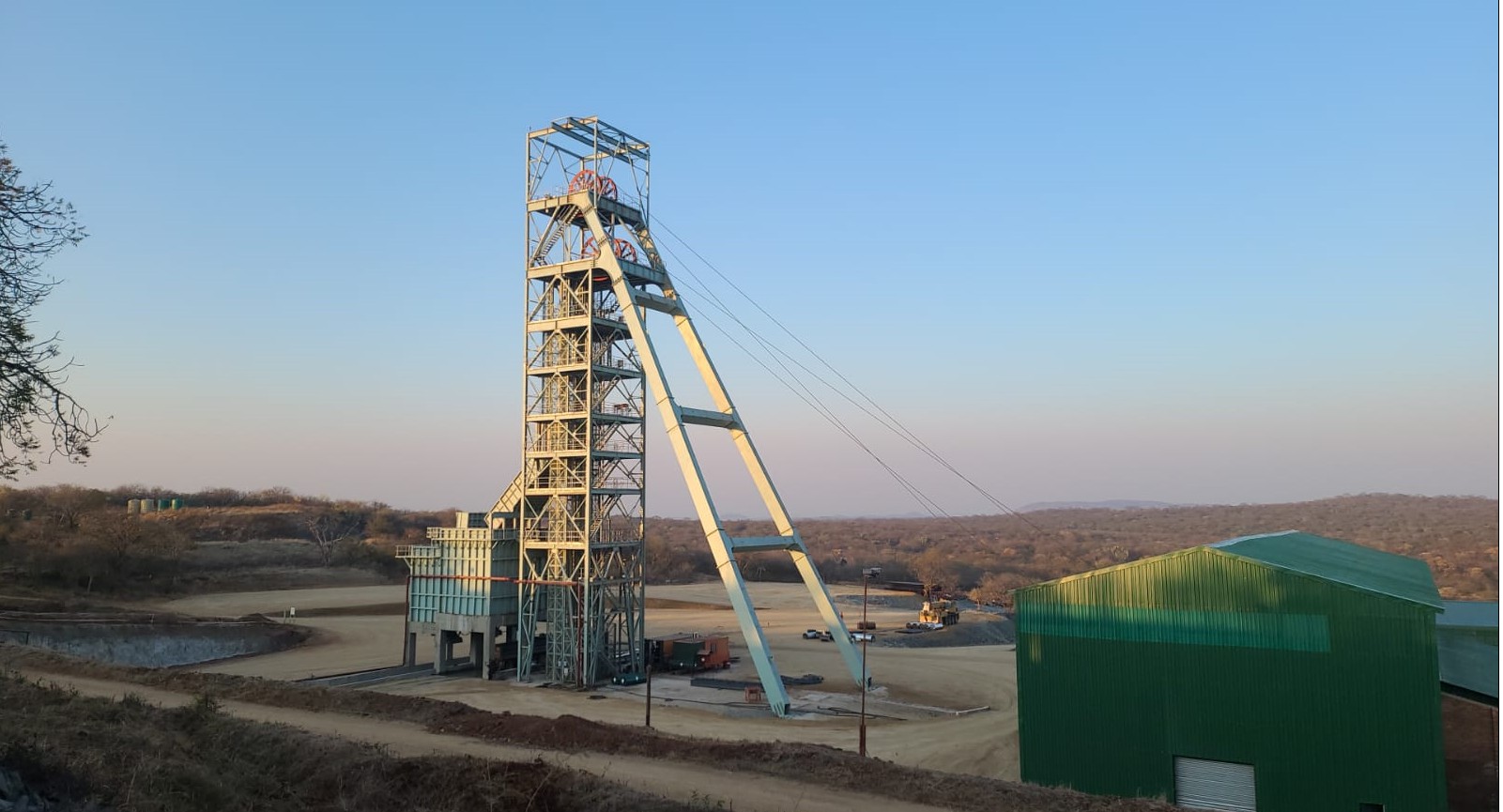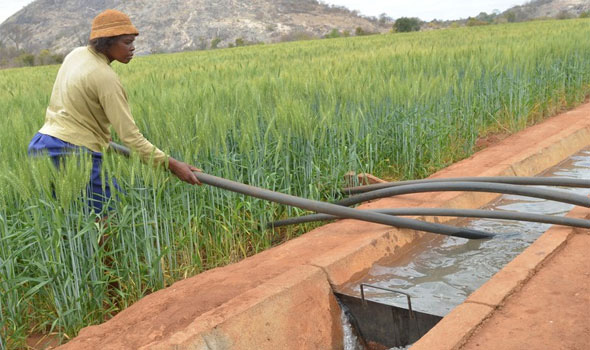Idle irrigation scheme’s full potential unlocked…Over 700households edge closer to food security
THE US$400 000 rehabilitation of Silalabuhwa Irrigation Scheme in the largely rural Insiza District in Matabeleland South Province is set to transform the lives of people from 746 households as Government continues accelerating rural development and industrialisation.
For several years, the vast tract of arable land has been lying idle despite its huge potential to improve the locals’ livelihoods. It was revived by the Government through the Agricultural Rural Development Authority (Arda).
The irrigation scheme, which is the largest in the province, is located in Ward 3 under Chief Sibasa area.
The Government in partnership with the International Fund for Agricultural Development (IFAD) intervened to save the irrigation project from total collapse through the Smallholder Irrigation Revitalisation Programme (SIRP)).
IFAD is a specialised agency of the United Nations that works to improve agricultural development and livelihoods in rural areas of developing countries.
Under the programme, canals that supply water from Silalabuhwa Dam to the irrigation scheme were rehabilitated and the valves were also replaced.
Other works include the rehabilitation of dam outlet works and dam intake structure, repair of 3km of water delivery infrastructure, reconstruction of infield canals, and rehabilitation of overnight night storage dam outlets and access roads.
Part of the rehabilitation included the introduction of block farming in all the plots to pave way for the implementation of the Arda Vision 2030 Accelerator Model meant to stimulate rural industrialisation through agricultural development in line with Vision 2030, which is anchored on driving
the country’s economy into upper middle-income status.
The programme is being implemented in 66 irrigation schemes in Matabeleland South, the Midlands, Masvingo and Manicaland provinces, with a targeted hectarage of 5 700ha.
In 2021, President Mnangagwa launched the Arda Vision 2030 Accelerator Model programme at Bubi-Lupane Irrigation Scheme.
Under this model, the Government is stimulating the industrialisation of rural communities through engendering value addition and beneficiation.
Each district across the country will have 200 hectares under irrigation with the beneficiaries being locals. Government is stepping up its rural industrialisation agenda with a raft of measures, which include incentivising local and foreign investors opting to invest in value chains for rural areas, being put in place to trigger economic activity.
Through rural industrialisation, Government hopes to stem rural-urban migration which saps growth from the African countryside, transferring it to towns and cities.
Rural industrialisation, which hinges on the Second Republic’s devolution policy, involves nurturing agro-processing start-up enterprises in rural areas through financial and technological support via venture capital funding and Government agencies.
Speaking during the commissioning of Silalabuhwa Irrigation Scheme last Thursday, Lands, Agriculture, Fisheries, Water and Rural Development Minister Dr Anxious Masuka said the rehabilitation of the irrigation scheme is in line with President Mnangagwa’s vision of transforming communities and alleviating poverty and hunger.
“This transformation must be sustained on robust agricultural growth. There is a strong nexus between agricultural development and rural development. That industrialisation must cause rural development to catalyse the attainment of Vision 2030, and this is why President Mnangagwa came up with Rural Development 8.0,” he said.
Dr Masuka said the revitalisation of irrigation schemes is part of President Mnangagwa’s broader vision of attaining vision 2030.
“This irrigation scheme and others all over the country are going under massive transformation and they are 450 of them covering 26 000 hectares.
All of them have similar challenges such as scheme governance, and that is why we need a new approach so that we have new resources that can be used cost-effectively and efficiently,” he said.
Dr Masuka said Government through Arda is introducing the block farming model in the scheme so that farmers can plant and harvest at the same time.
The irrigation scheme produces crops such as maize, sorghum and sugar beans mostly and occasionally, cabbages, green vegetables, onions andgarlic.
In interviews, plot holders said the rehabilitation of the irrigation scheme will see them utilising the entire 456 hectares.
“This is a huge relief for me as the water wasn’t getting to where it was supposed to and this really affected our crops. Now that the canals and the valves have been fixed, there is going to be an improvement in the flow of water and this year we expect to harvest more,” said Mr Jacob Nyathi.
Mr Thembinkosi Moyo, who had planted wheat on his 0,4-hectare plot, said he also expects improved yields this year.
“I am happy now that the canals have been fixed, which means our yields will also be improved,” he said.
The chairperson of Silalabuhwa Irrigation Scheme, Mr Joel Ndlovu, welcomed the rehabilitation of the scheme.
“In the past we couldn’t fully utilise the entire 456 hectares. There were some sections that were waterlogged which contributed to a reduction in terms of yields during the harvesting period,” he said.
Mr Ndlovu said following the rehabilitation of the irrigation scheme, farmers are now looking forward to the winter wheat cropping season in which Government is targeting 85 000 hectares.
“In the last season, we harvested and delivered 100 tonnes of wheat to GMB. So this year with the rehabilitated irrigation scheme, we expect to
double the yields. Government promised to support us with seed, fertiliser, and inputs,” he said.
The country requires about 360 000 tonnes of wheat annually and will have a surplus of the crop.
Matabeleland South Provincial Affairs and Devolution Minister Abednico Ncube urged the private sector to support Government initiatives as the
country journeys towards transforming rural communities.
“Given such huge value chain addition infrastructure projects. I, therefore, challenge the irrigators to commercialise this entity,” he said-herald









